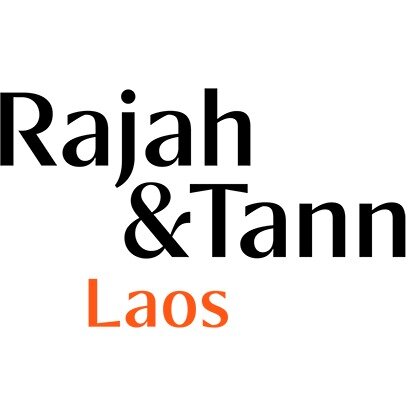Best Conveyancing Lawyers in Laos
Share your needs with us, get contacted by law firms.
Free. Takes 2 min.
Free Guide to Hiring a Real Estate Lawyer
Or refine your search by selecting a city:
List of the best lawyers in Laos
About Conveyancing Law in Laos
Conveyancing in Laos refers to the legal process of transferring property ownership from one party to another. This involves activities such as verifying property titles, preparing and reviewing contracts, and registering the transfer with the appropriate government authorities. Property law in Laos falls under civil law and is overseen by various governmental offices, including the Ministry of Natural Resources and Environment and the provincial/district land offices. In Laos, land is owned by the state, but individuals and entities can hold rights to use, transfer, or lease land in accordance with the law.
Why You May Need a Lawyer
Conveyancing may seem straightforward, but there are several scenarios where legal assistance becomes essential. You may need a lawyer when buying or selling land, buildings, houses, or any type of property, especially if you are not familiar with local procedures or language. Lawyers can help verify land titles, identify legal encumbrances, interpret regulations related to land use or foreign ownership, and manage the complexities of inheritance or family transfers. If there are disputes over property boundaries, or if you are dealing with multiple heirs or co-owners, having a legal professional to guide you can prevent costly mistakes and delays. In addition, foreigners face unique restrictions and requirements in land acquisition, making legal advice crucial.
Local Laws Overview
Laotian property law is largely guided by the Land Law, the Law on Property, and implementing decrees from the government. The key points that affect conveyancing are:
- All land is owned by the state, but individuals and organizations may be granted land use rights.
- Land use rights can be bought, sold, transferred, or inherited under certain conditions.
- Foreigners cannot own land but may lease or use property through registered entities or joint ventures, subject to government approval.
- A valid land title or certificate is required for any transfer; all changes to land rights must be registered with local authorities.
- Transfer procedures typically involve the Land Office, the Notary Office, and tax authorities.
- Due diligence is important to verify the absence of mortgages, liens, or disputes on the land or property.
- Transfer taxes and registration fees apply and are calculated based on the property value or area.
- There are strict procedures for transferring agricultural, communal, or concession land.
Frequently Asked Questions
What is conveyancing in Laos?
Conveyancing is the legal process of transferring land or property use rights from one party to another in Laos. It includes contract drafting, title checks, due diligence, and registration with government authorities.
Can foreigners own land in Laos?
Foreigners cannot own land outright but may lease property or acquire usage rights under specific circumstances, such as through a registered company or joint ventures and with official government approval.
What documents are required for property transfer?
Standard documents include the land title or certificate, identification documents of buyer and seller, sale-purchase agreement, evidence of tax payment, and the application for transfer registration with local land authorities.
How long does the conveyancing process take?
The process can take from several weeks to several months, depending on the complexity of the transaction, the type of property, the completeness of documentation, and the efficiency of government offices.
What fees and taxes are involved?
Typical fees include stamp duty, transfer tax, notary fees, and registration fees. Rates vary based on property value, location, and property category.
Do I need a lawyer for property transfer in Laos?
It is not mandatory to hire a lawyer, but professional legal advice is strongly recommended to avoid complications, ensure compliance with local laws, and protect your interests.
Are there restrictions on transferring agricultural land?
Yes. Transferring agricultural land often requires approval from relevant authorities, and usage must comply with land use plans and agricultural development policies. Foreigners cannot acquire agricultural land.
What is due diligence in conveyancing?
Due diligence involves verifying the ownership, existing mortgages or liens, zoning status, permitted use, and any potential disputes or encroachments related to the property.
What happens if there is a dispute during transfer?
Disputes are typically resolved through negotiation, mediation, or, if necessary, litigation through the local courts. It is best to seek legal representation early to resolve matters efficiently.
Can property be transferred through inheritance?
Yes, property use rights can be transferred to heirs in accordance with the law. The process involves probate, official certification of inheritance, and registration with the relevant land authorities.
Additional Resources
- Ministry of Natural Resources and Environment - Land Management Department
- Local District or Provincial Land Offices
- Notary Offices for contract authentication
- Laos Bar Association for finding certified lawyers
- Embassies and consulates, especially for foreigners seeking to lease or purchase property
- Legal aid organizations operating in Laos
Next Steps
If you are considering buying, selling, leasing, or inheriting property in Laos, start by gathering all relevant property documents, such as titles or land certificates. Speak with a certified lawyer in Laos who is experienced in property transactions and familiar with the local legal and bureaucratic landscape. Consult with the Land Office in your property’s jurisdiction and ensure you understand all taxes and fees involved. If you are a foreigner, be sure to check the most current rules regarding foreign ownership or leasing arrangements. Consider contacting your embassy or a recognized legal aid office if you have concerns. A legal professional can guide you through due diligence to ensure your transaction goes smoothly and your investment is secure.
Lawzana helps you find the best lawyers and law firms in Laos through a curated and pre-screened list of qualified legal professionals. Our platform offers rankings and detailed profiles of attorneys and law firms, allowing you to compare based on practice areas, including Conveyancing, experience, and client feedback.
Each profile includes a description of the firm's areas of practice, client reviews, team members and partners, year of establishment, spoken languages, office locations, contact information, social media presence, and any published articles or resources. Most firms on our platform speak English and are experienced in both local and international legal matters.
Get a quote from top-rated law firms in Laos — quickly, securely, and without unnecessary hassle.
Disclaimer:
The information provided on this page is for general informational purposes only and does not constitute legal advice. While we strive to ensure the accuracy and relevance of the content, legal information may change over time, and interpretations of the law can vary. You should always consult with a qualified legal professional for advice specific to your situation.
We disclaim all liability for actions taken or not taken based on the content of this page. If you believe any information is incorrect or outdated, please contact us, and we will review and update it where appropriate.
Browse conveyancing law firms by city in Laos
Refine your search by selecting a city.










